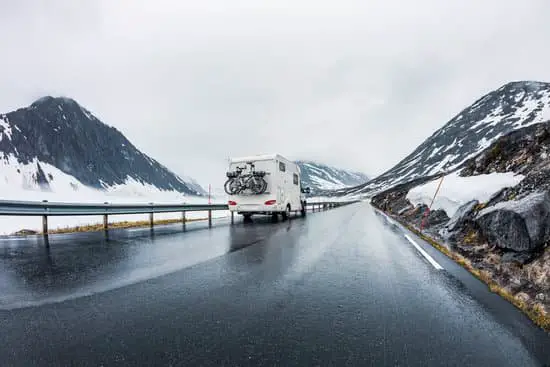An RV is a big purchase for most people. With an average cost of $35,000 to $150,000+, you want to make sure that the financing options you choose are right for your budget and needs. The length of time on an RV loan can vary depending on many factors, including your credit score and income level. In this blog post, we’ll help you figure out what length of RV loan is best for you!
How long are RV loans? An RV loan is a popular tool for families who want to enjoy the freedom of driving an RV without sacrificing their ability to buy other necessities. The length of these loans ranges from 10-15 years, but many banks and credit unions will extend this up to 20 years if you have more than $50 thousand in collateral funds available (or are willing to put it down).
What is an RV loan?
Recreational vehicles can range from as little as $10,000 to more than $1 million. Many lenders offer RV loans for both new and used recreational vehicles which use the vehicle itself is collateral on your loan. Most of these RV loans have repayment terms between one and 15 years long that most borrowers are able to pay off easily because they hold a high value in today’s market.
The cost of an RV varies widely depending on what type you get so it’s important to do your research before buying anything!
An RV loan is a type of car loan that lets you purchase an RV without taking on the full cost upfront. The lender pays for your new or used vehicle while charging interest over time and adding in extra fees for these loans.
What are the differences between an auto loan and an RV loan? Auto loans typically have lower monthly payments than RVs because they’re paid back in shorter increments, likely three to five years instead of 10-15 years with RVs.
This means you don’t have as much collateral at stake if something happens to your vehicle before it’s fully paid off–and also less risk that you’ll default on your payment obligations!
What is the average interest rate for an RV loan?
For example, LightStream offers a 4.29% to 11.89% APR with autopay and Navy Federal Credit Union has 7.99%-8.80%. Additionally, U-Bank starts at 5%, USAA begins at 6%; SunTrust Bank’s starting range ranges from 4.74 -5.74 % while still offering up to 240 months of financing options!
One important factor in considering an auto loan or lease might be your credit score as well as how much money you’re putting down on a vehicle purchase since many lenders require that amount before they’ll make any type of offer when looking into loans.
How hard is it to get an RV loan?
If you’re looking to purchase a recreational vehicle, it can be more difficult than getting approved for a car loan. Some lenders may offer RV loans but they’ll likely take into consideration things like your debt-to-income ratio and employment history as well as income.
You may also need to provide more information about the types of vehicles you plan on purchasing as this will impact resale value.
An RV loan can be a long-term and large financial commitment. It’s important to consider the length of an RV loan as there are loans with many years left on them. Deciding how much you want to spend on your vehicle is also key so that in addition to paying for the monthly payments, you’ll have some additional money set aside for future repairs or other costs incurred over time.
There may not always be enough credit history available for lenders when it comes to recreational vehicles because they’re typically more expensive than cars; this means that extra precautions might need to be taken before getting approved. One strategy would be taking out a car loan first and then later going into debt to purchase an RV at higher interest rates.
Is an RV loan tax deductible?
Under the U.S. tax code, RV buyers can deduct the interest on certain loans used to purchase RVs as a mortgage for their second home because it’s typically only seen during weekends and vacations due to its size.
It’s always worth consulting with a tax advisor to ensure you’re getting the most out of your deductions.
The “second home” deduction is only available when purchasing RVs as loans over five years are paid off in order to avoid that initial mortgage interest being considered as taxable income during those first few years following purchase – something less typical with a primary residence or traditional second property like a rental apartment.
What is the minimum credit score for an RV loan?
It is generally accepted that a good FICO score lies in the range of 660-700. However, if your credit isn’t within this range it doesn’t necessarily mean you won’t be able to buy an RV. There are options for financing available with scores as low as 500 or 600 and these may work out better than what else might have been offered before.
If you’re looking to improve your credit score before applying, then it’s important to work on building a strong history of payments.
The first order of business is to establish an emergency fund that will cover your expenses for three months should any unforeseen event come up and you need cash quickly such as unemployment or illness.
Paying off debt is also key in raising your credit score because the lower balances are reported much more favorably than high ones. Putting some money away each month into this account can be very beneficial when making large purchase decisions like purchasing an RV loan with bad credit scores.
You may want to consider putting at least $500 per month into your bank account so that if anything unexpected happens, you have enough funds ready without having to go through extensive loans which would negatively affect you.
Is it better to finance or pay cash for an RV?
When it comes to purchasing a camper, you might want to consider saving up and paying cash. A $10,000 loan financed for 5 years at 4% interest would have monthly payments of about $185. If you saved that same amount every month instead ($185), then in 54 months (or four-and-a-half years) – which is much shorter than the five-year term on your loan; plus with no extra fees or costs!
You could save more than one thousand dollars in finance charges by using our money advice now rather than later when taking out loans from banks and other lending institutions like credit cards are just too tempting not to take advantage of right away.
The key is to be patient and be consistent with your savings.
If you wait and continue to get more into debt, then it will be an even longer time before you can have something like a camper.






